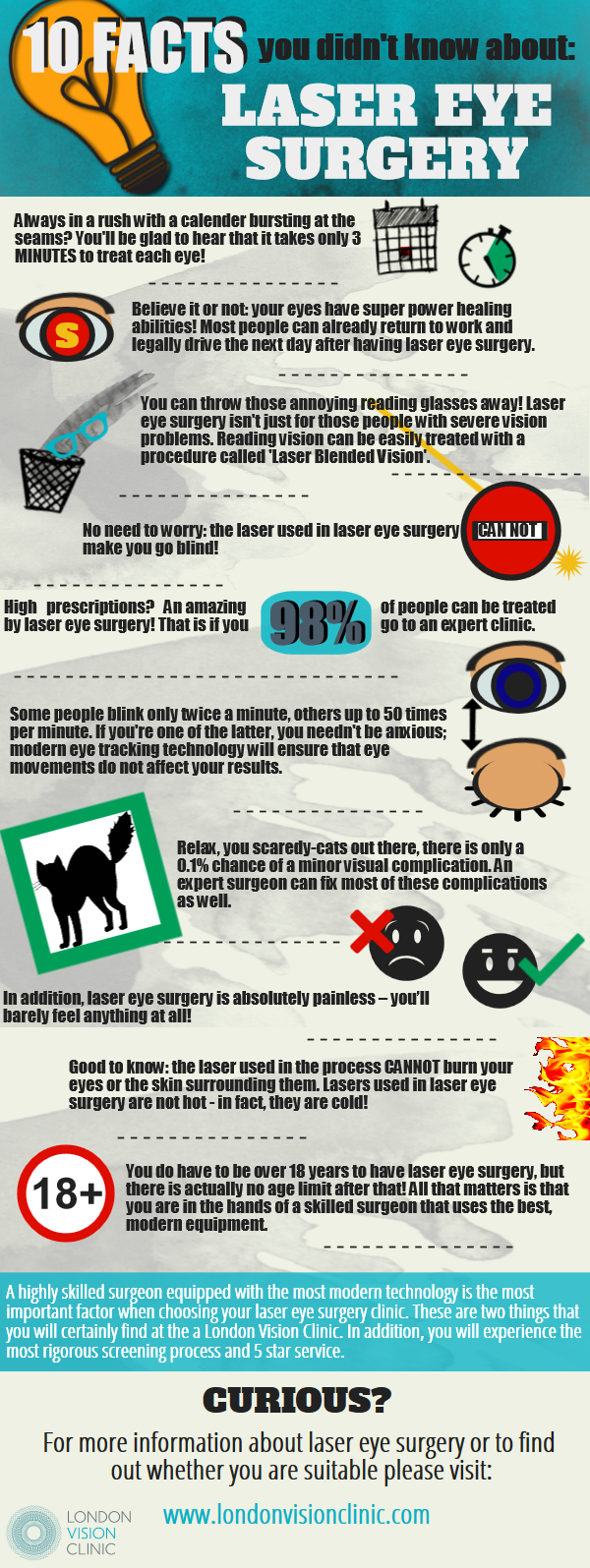Article Author-Buch Neumann
If you're taking into consideration vision adjustment options, SMILE eye surgical treatment may be on your radar. This innovative procedure involves producing a small lenticule in the cornea to attend to nearsightedness and astigmatism. Unlike typical LASIK, it's less invasive and assures quicker healing. Nevertheless, while there are significant benefits, there are additionally dangers entailed. Comprehending both aspects can assist you make an enlightened choice regarding your eye health and wellness. What's the recovery procedure like, and what should you expect?
Understanding the SMILE Procedure
The SMILE treatment, or Tiny Incision Lenticule Extraction, is a minimally invasive eye surgical treatment designed to fix vision problems like nearsightedness and astigmatism.
Throughout this procedure, a laser produces a little lenticule, or lens-shaped tissue, within the cornea. https://www.verywellhealth.com/cataract-surgery-cost-5114477 won't need any stitches, as the tiny incision permits a fast recuperation.
The surgeon then gets rid of the lenticule via this tiny cut, improving your cornea to improve your vision. Unlike traditional LASIK, SMILE doesn't call for the development of a big flap, which can bring about less difficulties.
You'll discover that this method is much less disruptive to the corneal framework, possibly enhancing security. Recognizing the treatment assists you really feel more confident as you consider your alternatives for vision improvement.
Advantages of SMILE Eye Surgical Treatment
While considering vision modification alternatives, you might discover that SMILE eye surgery uses several compelling benefits.
Initially, it's minimally intrusive, needing only a tiny incision, which implies less disruption to your eye structure. This leads to quicker recuperation times and much less pain contrasted to conventional LASIK.
You'll additionally value its precision; SMILE makes use of innovative laser innovation to improve the cornea, providing outstanding results for nearsightedness and astigmatism.
Additionally, numerous patients report enhanced visual high quality, with fewer circumstances of glare or halos. Since there's no demand for a corneal flap, your eyes remain extra stable post-surgery.
Last but not least, the treatment normally takes simply a few mins, permitting you to go back to your day-to-day activities much faster than with other methods.
Potential Threats and Healing Refine
Although SMILE eye surgery is usually risk-free, it is necessary to be knowledgeable about potential risks that can develop throughout or after the procedure. Some individuals may experience momentary adverse effects like completely dry eyes, glare, or halos around lights.
In uncommon situations, difficulties such as infection, vision loss, or the need for additional surgery can take place.
Recovery typically includes a couple of days of rest and staying clear of exhausting tasks. You should follow your doctor's post-operative directions carefully, including making use of suggested eye declines and attending follow-up consultations.
Numerous people observe enhanced vision within a few days, but complete recovery can take weeks. Remaining person and giving your eyes time to recover is crucial for the best outcome.
Verdict
In conclusion, SMILE eye surgery provides a modern-day, minimally invasive alternative for correcting nearsightedness and astigmatism. With related resource site and reduced discomfort, it's an enticing choice for lots of. However, it's important to consider the possible risks versus the advantages. By staying educated and following post-operative care, you can maximize your chances of a successful outcome. If you're considering this treatment, talk to your eye treatment professional to establish if it's right for you.

